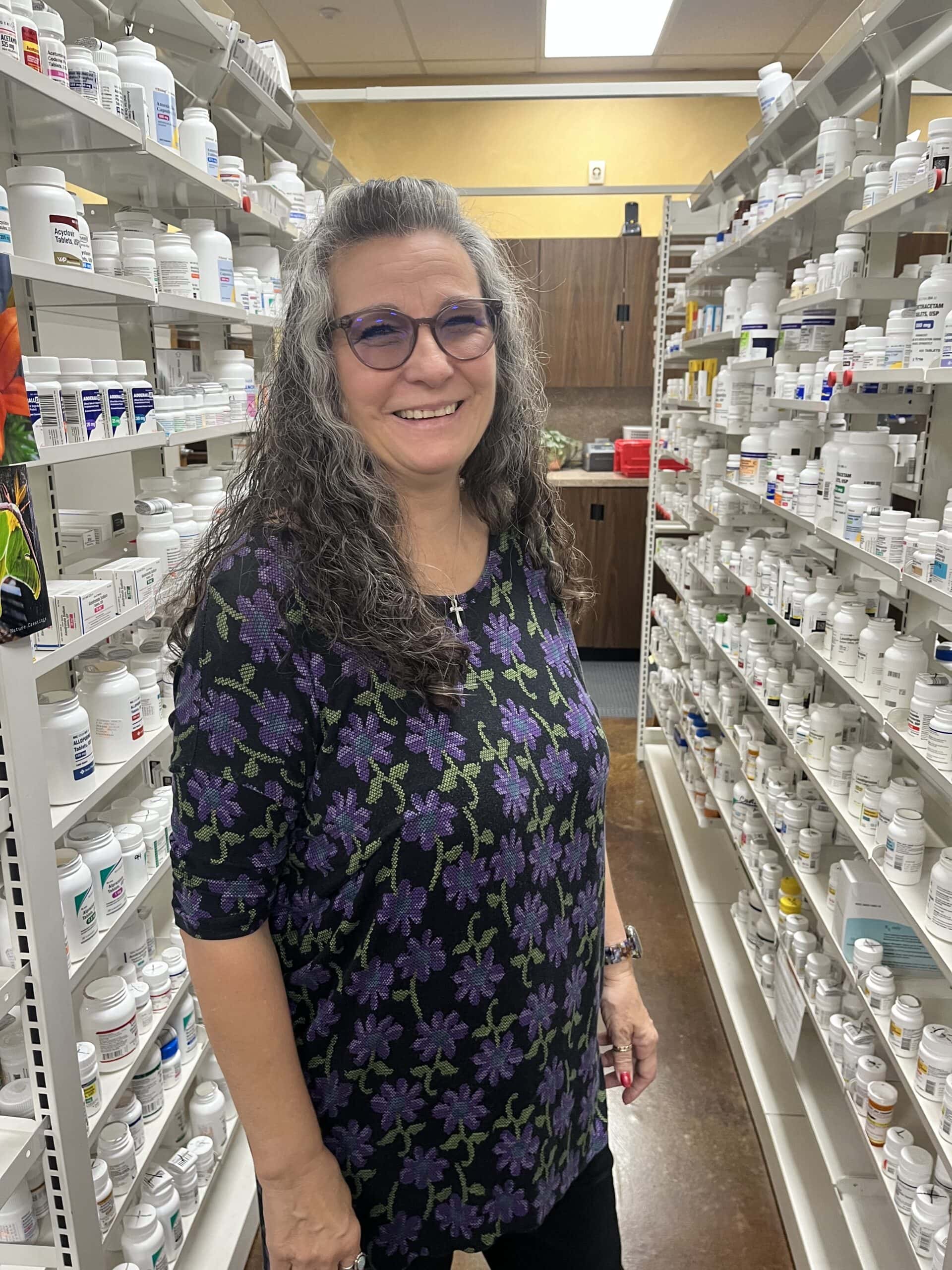The Heart of Rural Health Care: The Unique Impact of One Community Health Worker in Montgomery County
| This story originally appeared in the Winter 2024 edition of the Arkansas Family Physician, the official publication of the Arkansas Academy of Family Physicians.
Michele Duncan didn’t grow up in Arkansas, but from the moment she set foot in Mount Ida — a small, close-knit community in the heart of Montgomery County — she knew she was home. The rolling hills, winding rivers and dense forests paint a picturesque landscape. But beneath the surface, a stark reality unfolds: a health care crisis deeply rooted in rural isolation.
For more than six years, Duncan worked for the state as a case manager, where she encountered the deep-seated challenges that families faced in rural Arkansas. Her approach went beyond enforcing regulations; she focused on educating and supporting families to address systemic issues and advocating for their needs. This work gave her a profound understanding of how social and economic conditions within a community can affect health, laying the groundwork for her transition to community health.
Across Arkansas, community health workers (CHWs) are emerging as vital lifelines, especially in rural communities like Mount Ida, where access to health care is often scarce.
After retiring from her position as a case manager, Duncan found herself drawn back into community service. She received a call from Mount Ida Pharmacy about a CHW position. The role allowed her to continue her passion for helping others. She worked hard to overcome initial distrust from community members who saw her as a figure of authority, eventually becoming a trusted ally.
CHWs demonstrate a steadfast commitment to empowering their communities, showcasing the significant impact these professionals can have on improving health equity and access. CHWs are deeply ingrained in the communities they serve, enabling them to establish trust and rapport with residents in ways that health care providers often cannot. They serve as vital links between the community and the health care system, facilitating access to essential resources like housing or food, and advocating for their community’s needs to remove barriers to care.
This holistic and community centered approach to health care is becoming a significant part of the solution to limited access to primary care throughout rural Arkansas. Nearly 80% of Arkansas counties are classified as Medically Underserved Areas (MUAs) by the Human Resources and Services Administration, meaning they severely lack access to primary care services. Many public health organizations are turning to CHWs to help address these gaps in care.
The UAMS Institute for Community Health and Innovation is one such group. A strong belief in the power of CHWs to improve health outcomes across the state inspired the institute to develop its CHW training program. The institute partners with employers throughout the state who cosponsor new or existing CHWs while they participate in the training program. The program includes 160 hours of classroom education and 2,000 hours of on-the-job training over the course of a year and connects trainees to expert mentors. Through this program, UAMS has trained and deployed numerous CHWs, including Duncan.
Duncan said her CHW mentor, Rosalinda Medrano, has been an invaluable resource for her, providing guidance and acting as a sounding board to ensure she is serving the community to the best of her ability.
“Rosalinda and I just connected,” Duncan said. “I would get stumped about something, and she would just pick it up and take off with it.”
Their relationship has given Duncan the tools to be more effective in her work and helped her stay connected to her mission when things get tough.
“It’s hard,” she said. “Some things just break my heart.”
Working in a rural county presents unique challenges. The local pharmacy where Duncan works serves as a crucial point of entry for health care in Montgomery County. Not just a place to fill prescriptions, the pharmacy also is a trusted community hub where people can seek help and advice. It’s well-known among the people who live in the area as the place to go when you need assistance, thanks largely to the caring spirit of Duncan and the pharmacist, Laura Wagner.
“I will help anyone I can, and Laura has a heart of gold. She believes in our community,” Duncan said.
The needs Duncan addresses aren’t always related to health care. She once harnessed the power of social media to help a family pay their water bill, with community members chipping in to assist their neighbor. For Duncan, this kind of community support is what Montgomery County is all about, and one of the main reasons she fell in love with the community in the first place.
Despite the community’s resilience, Montgomery County faces significant challenges. Duncan’s resourcefulness and determination underscore the critical role CHWs play in underserved areas across the state. They go beyond health care, acting as trusted advisors, advocates and pillars of support for people who need it most.
As rural Arkansans continue to face challenges accessing comprehensive health care, the role of CHWs becomes increasingly indispensable. Duncan’s story is a testament to the power of dedication, compassion and community spirit, qualities that are essential to the health and well-being of rural Arkansas.
To learn more about the UAMS Institute for Community Health Innovation’s Community Health Worker Training Program, visit communityhealth.uams.edu.
